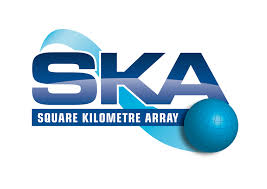Special Session SS29
26 June 2019
The role of European-led surveys in guiding future SKA1 science
Aims and scope
 European researchers have played a leading role in many multi-wavelength surveys that will be of key relevance when defining future programmes with the two SKA phase 1 (SKA1) radio telescopes. These facilities are scheduled to come online toward the middle of the next decade, and the design work has benefitted from a global collaboration that includes six European countries. These will be the most sensitive radio telescopes ever built, with SKA1-LOW in Australia covering the 50 to 350 MHz window and SKA1-MID in South Africa observing from 350 MHz up to at least ~15 GHz. It is expected that somewhere between 50 and 70% of the observing time will be allocated to large survey programmes, where leadership of these teams will be restricted to scientists from SKA member countries.
European researchers have played a leading role in many multi-wavelength surveys that will be of key relevance when defining future programmes with the two SKA phase 1 (SKA1) radio telescopes. These facilities are scheduled to come online toward the middle of the next decade, and the design work has benefitted from a global collaboration that includes six European countries. These will be the most sensitive radio telescopes ever built, with SKA1-LOW in Australia covering the 50 to 350 MHz window and SKA1-MID in South Africa observing from 350 MHz up to at least ~15 GHz. It is expected that somewhere between 50 and 70% of the observing time will be allocated to large survey programmes, where leadership of these teams will be restricted to scientists from SKA member countries.
In this special session, we will highlight ongoing and near-future European-led, multi-wavelength observing programmes that could help define SKA1 large survey strategies during the next decade. For example, survey data from the LOFAR and MeerKAT radio telescopes in Europe and South Africa has begun emerging, with many science projects in both cases having strong European leadership. Similarly, the ESA-led EUCLID mission and ESO-led 4MOST telescope will conduct wide area galaxy baryon acoustic oscillation (BAO) surveys that will constrain models of Dark Energy, while SKA1 BAO HI surveys may provide similar constraints but with different systematics. Specific areas of research that should be touched upon include:
Programme
- Multi-wavelength transient surveys
- Multi-messenger astrophysics
- Pulsar timing arrays and gravitational wave science
- Physics and kinematics of the interstellar medium in nearby and distant galaxies
- Magnetic fields from small to large scales
- Star-formation in galaxies as measured through radio continuum surveys
- Cosmological studies through galaxy surveys
- 21cm studies of the Epoch of Reionization/Cosmic Dawn
- Planet formation
- Solar physics
Invited speakers
(Confirmed)
Guillem Anglada (IAA, ES)
Gianni Bernardi (INAF, IT)
Anna Bonaldi (SKAO, UK)
Jean-Paul Kneib (EPFL, CH)
Natasha Maddox (LMU, DE)
Antonia Rowlinson (U. Amsterdam, NL)
Vernesa Smolcic (UniZG, HR)
Caterina Tiburzi (ASTRON, NL)
Susanna Vergani (Obs. Paris, FR)
Valentina Vacca (INAF, Cagliari, IT)
Nicole Vilmer (Obs. Paris, FR)
Scientific organisers
Robert Braun (SKAO, UK)
Francoise Combes (Obs. Paris, FR)
Chiara Ferrari (Obs. de la Cote d'Azur, FR)
Jason Hessels (ASTRON and U. Amsterdam, NE)
Natasha Hurley-Walker (Curtin U., AU)
Doug Johnstone (NRC-Herzberg and U. Victoria, CA)
Ann Mao (MPIfR, DE)
Garrelt Mellema (Stockholm U., SE)
Divya Oberoi (NCRA, IN)
Grazia Umana (INAF, IT)
Willem van Straten (AUT, NZ)
Lourdes Verdes-Montenegro (IAA, ES)
Jeff Wagg (SKAO, UK)
Laura Wolz (U. Melboure, AU)
Contact
Jeff Wagg (j.wagg AT skatelescope.org)
Chiara Ferrari (chiara.ferrari AT oca.eu)
Robert Braun (r.braun AT skatelescope.org)
Updated on Tue May 07 16:39:43 CEST 2019
|